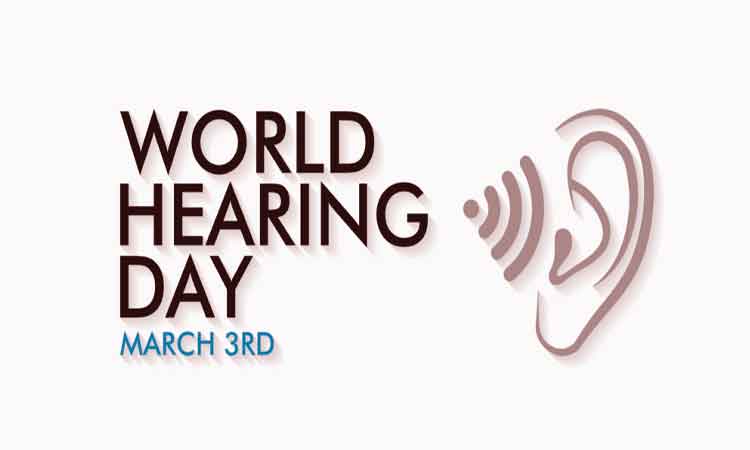
365telugu.com online news,Hyderabad,march 2nd,2022:Two or three of every 1,000 children in India are born with severe to profound hearing loss. Even more will lose their hearing during infancy or childhood. The most important period of speech and language development occurs during the first three years of life, when the brain is constructing nerve pathways necessary for understanding speech.
Hearing is a brain function and a baby’s brain is “pre-wired” to accept and process sound. Babies with typical hearing begin hearing before birth, at 20 weeks’ gestation. At birth, babies prefer listening to their mother’s voice, their native language, human speech rather than noise, and songs or stories heard before birth.
Hearing loss in babies is a “neuro developmental emergency.” The brain is the true organ of hearing; the ears only transmit sounds to the brain. Babies born with hearing loss are not starting from the same point as a baby with normal hearing. They have missed 20 weeks of typical development of their auditory pathways before birth. They will miss the auditory neural development that occurs after birth, before hearing loss is diagnosed. They will miss the typical development of auditory brain pathways that could have occurred after birth, until the child begins hearing sounds consistently by wearing hearing aids during all waking hours.

Timing is critical to optimize outcomes. Babies with hearing loss identified in the first weeks of life, and who begin hearing optimally no later than six months, have a good chance of developing neural connections in their auditory brain pathways necessary to lay the foundation for spoken language development. This is especially true if they are provided with enhanced listening experiences. The best predictors of verbal language skill development are the child’s age when full-time hearing aid use started, the degree of hearing loss and the amount of exposure to meaningful listening experiences. Hearing aids, FM systems and cochlear implants are “brain access” tools. To take advantage of the critical period of optimal auditory brain development, the ability of the brain to perceive as much sound as possible must be provided as soon as possible after birth.
Children with hearing loss are at risk not only for lifelong deficits in speech and language acquisition, but poor academic performance, personal-social maladjustments and emotional difficulties. In addition to developmental delays, these children may have behavioural problems such as attention deficit/hyperactivity disorder, autism or learning disabilities. They should have regular surveillance of developmental milestones. Due to Covid most of the parents are identifying the hearing problem, but parents are scared to undergo necessary treatment.
With the improved technology we can even identify hearing loss soon after birth. Based on hearing problem treatment options varies, it can be medical intervention or they may have to use hearing aids or they may need cochlear implant surgery. We need to identify early and start intervention to stimulate the brain. Cochlear implant cost varies from Rs.8, 00,000 to Rs.20, 00,000 for each ear, Indian government is providing cochlear implant for free of cost for the families with lesser income (less than Rs .1, 80,000 per annum), and age should be less than 5 years.

In 2021 though there was huge Covid second wave, we have done around 100 cochlear implant surgeries. We could achieve this with the support of parents who understood the importance of early intervention and underwent cochlear implant surgeries. As a professional we took all covid precautions and without any complications we could give hearing to all these kids. Out of these surgeries few of them are done under government and others are private paid surgeries. We have done several surgeries in age range of less than 12 months. Awareness among the parents is increased on hearing loss in babies, parents are able to suspect the hearing problem early stages and bringing them for testing and intervention by 6 months to 10 months. In rural areas identifying hearing problem in kids are challenging, parents are identifying at around 2 to 3 years age range. This leads to delayed intervention. To see the best results, we need to identify and start intervention by 10 months of age

